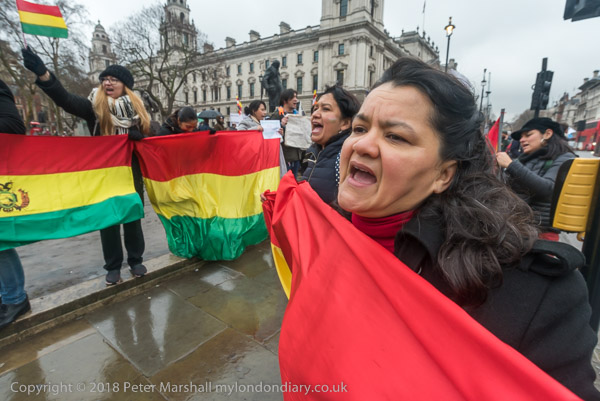
Bolivian president Evo Morales has led his country since he became president in 2006, following an election in which his vote was roughly twice that of his nearest rival. His policies, aimed at reducing the US influence in the area, and getting more of the profits from Bolivia’s oil and gas industries enabled much greater spending on public works projects and social programmes resulted in a significant decrease in poverty, and he was re-elected with an increased majority in 2009. And although he had said he would not stand for a third term, he changed his mind and was elected again in 2014.
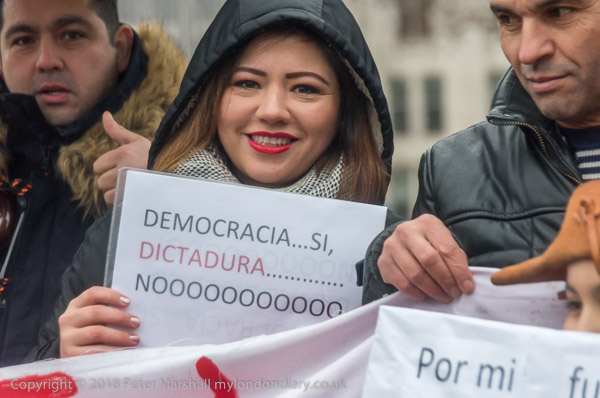
In 2016 Bolivia held a referendum on whether Morales should be allowed to stand for a fourth term in 2019. His reputation had been damaged by allegations that Morales had favoured a Chinese company with state contracts because he had fathered a child with a woman who was a lobbyist for them. He admitted the relationship but denied any favouritism. There had too been a slowing of growth in the Bolivian economy due to global problems, and the indigenous groups were becoming upset at not benefiting as much as they should from the increased wealth of the country, which has created and large and growing middle class, many of whom do not support his anti-imperialist policies. The vote to change the constitution to allow him to stand went against him by 51% to 49%.
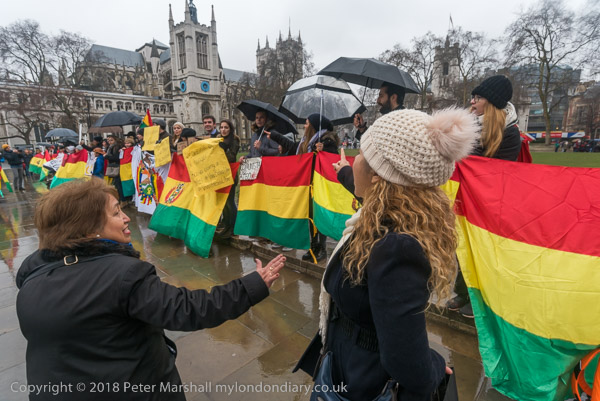
Morales cried ‘Foul!’ (he is a keen footballer) and appealed to the Supreme Court, who ruled that, despite the constitution, no public offices should have a term limit allowing him to stand, which he says he needs to do to consolidate his party’s programme of of social reforms. The protesters accuse him of wanting to be a dictator and abandoning democracy. Some were also protesting against the revised penal code recently signed by the President, which, among other things makes provision for legal abortion, but that some journalists say endangers freedom of expression and worries some in other professions about the sanctions for professional misconduct.
Referendums, as we have found to our cost in the UK, are exceedingly blunt instruments, and there are very good arguments where any constitutional change is concerned for calling for more than a simple majority. And for countries that have a representative democracy I think they should only ever be advisory to the parliament. Morales clearly lost this one, as even had the vote been the other way round it would not have been a satisfactory mandate. And in the case of the UK, our Prime Minister who made the mistake of calling the referendum, should have made clear when he did so that no government would be bound by the result. 52% to 48% should have made our government look carefully at the issues and examine the possibilities but it should not have led to them rolling over with their legs in the air.
Back in Parliament Square, as well as reflecting on the idiocy of referendums (or -da?) I couldn’t help thinking that the protest was perhaps more about some of the socialist policies of Morales than about the constitutional issues that were presented as its cause.
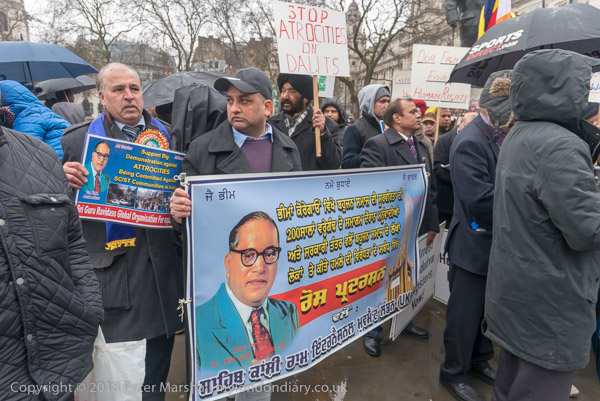
A short distance from the Bolivians, various Indian groups were gathering for a march to the Indian High Commission in protest against attacks on the Dalit community in India by Hindu fundamentalists and the continuing illegal caste-based discrimination. The protest was organised by the Dr Ambedkar Memorial Committee GB, and supported by various Ravidass groups, Amberdkarite and Buddhist organisations and the South Asian Solidarity Group. Dr Ambedkar, arguably India’s greatest 20th century statesman was the author of the Indian constitution, which outlawed caste discrimination, but it is still endemic there, and in the Indian diaspora. Government moves to outlaw it in this country were stopped by representations from the Hindu community, which includes a number of wealthy donors to the Conservative party.
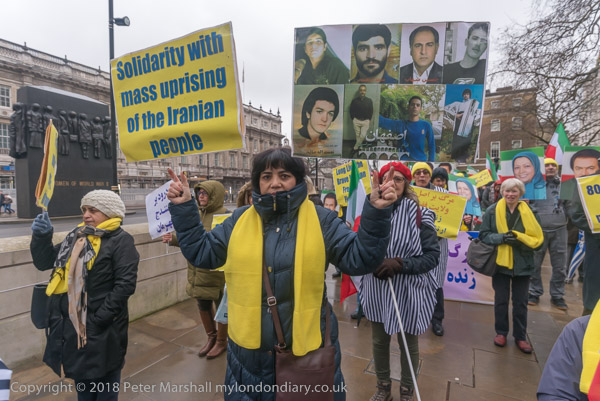
And to complete a typically international London scene, a short distance away in Whitehall a further protest was taking place at the same time, with a rally organised by exiled Iranian groups urging UK Prime Minister Theresa May to break her silence over the uprising in Iran and call for the immediate release of the thousands arrested and under threat of the death penalty.
Read more about the protests and see more pictures on My London Diary:
Bolivians protest for Liberty & Democracy
Indians protest Hindu caste-based violence
Break UK silence over Iran uprising
______________________________________________________
There are no adverts on this site and it receives no sponsorship, and I like to keep it that way. But it does take a considerable amount of my time and thought, and if you enjoy reading it, a small donation – perhaps the cost of a beer – would be appreciated.
My London Diary : London Photos : Hull : River Lea/Lee Valley : London’s Industrial Heritage
All photographs on this and my other sites, unless otherwise stated, are taken by and copyright of Peter Marshall, and are available for reproduction or can be bought as prints.
To order prints or reproduce images
________________________________________________________
My “O” level Latin says referendum is a gerund or neuter gerundive of referre. In Latin it has no plural but we don’t speak in Latin only derive from it so I agree with an ex Speaker of the House of Commons, remember when we had decent ones? Yes I know you need a long memory.
Madam Speaker (Baroness Boothroyd)
“I do notice on the Public Bill List that the word referendums for Scotland and Wales is used there. The word referendum was first used in English 150 years ago, according to the Oxford English dictionary which I’ve just been able to refer to.
“So I imagine after 150 years the House will be quite used to it now. I think the plural is a matter of taste but I’ve always preferred the use of the English language to any Latin form if that is of some guidance.”
Hansard 3 Jun 1998 : Column 282
https://publications.parliament.uk/pa/cm199798/cmhansrd/vo980603/debtext/80603-02.htm
As an aside, as if this was not, she was of course later appointed as Crown Steward and Bailiff of the three Chiltern Hundreds of Stoke, Desborough and Burnham.
Thanks for that. All is now clear.
I think it is the quality of governments that has declined most sadly in recent years and doubt if Betty B would have been able to get the PM ever to answer a question either.